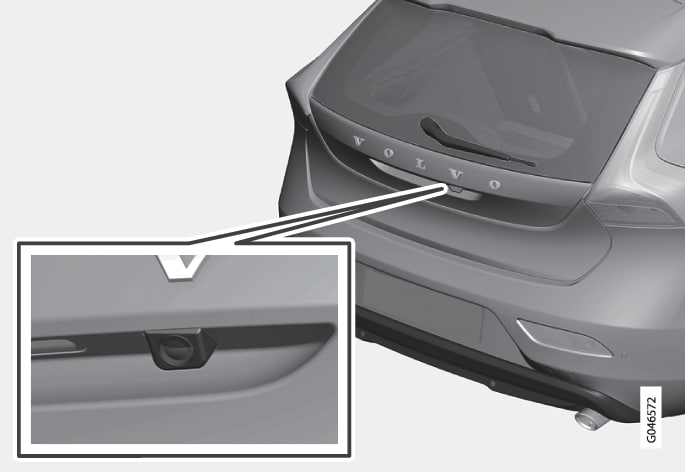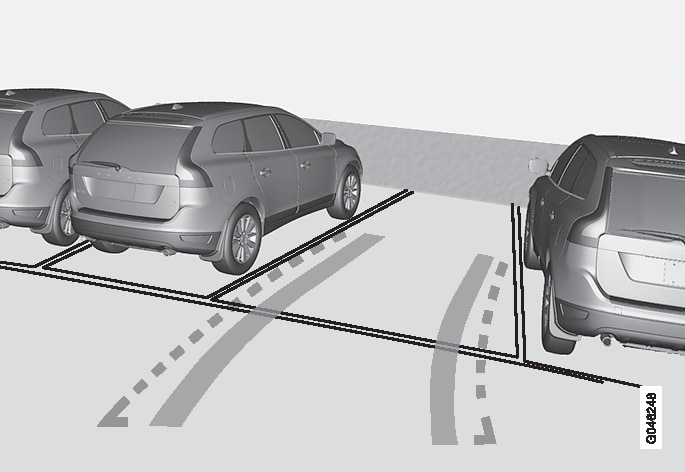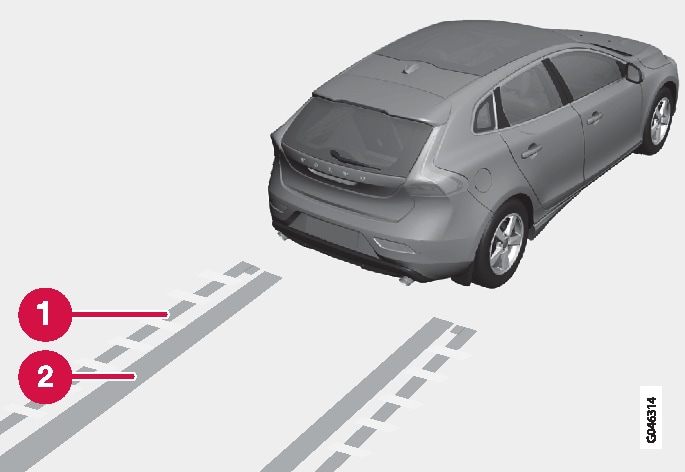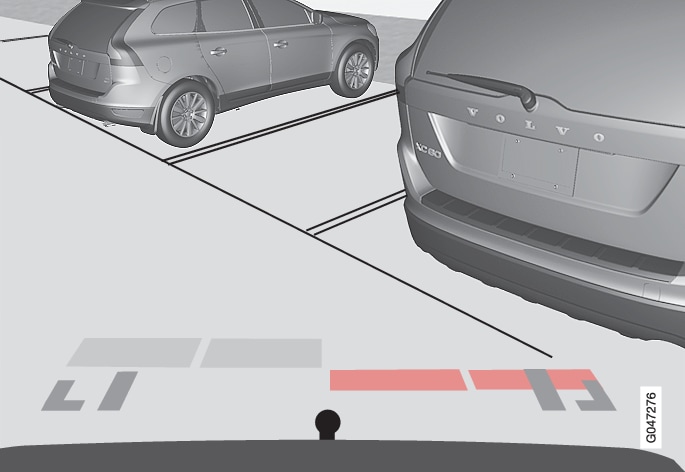The camera image is shown on the centre console's screen.
Note
Warning
- The parking camera is an aid and can never replace the responsibilities of the driver when reversing.
- The camera has blind spots where obstacles cannot be detected.
- Be aware of people and animals near the car.
Function and operation

The camera shows what is behind the car and if something appears from the sides.
The camera shows a wide area behind the car and part of the bumper and any towbar.
Objects on the screen may appear to tilt slightly - this is normal.
Note
If another view is active then the parking camera system takes over automatically and its camera image is displayed on the screen.
When reverse gear is selected, two unbroken lines are shown graphically which illustrate where the car's rear wheels will roll with the current steering wheel angle - this facilitates parallel parking, reversing into tight spaces and for hitching a trailer. The car's approximate external dimensions are illustrated by means of dashed lines. The park assist lines can be deactivated - see section Settings .
If the car is also equipped with Parking assistance sensors then their information is shown graphically as coloured areas in order to illustrate the distance to detected obstacles, see heading "Cars with reversing sensors" later in the text.
The camera is active approx. 5 seconds after reverse gear has been disengaged or until the car's speed exceeds 10 km/h (6 mph) forward or 35 km/h (22 mph) backward.
Light conditions
The camera image is adjusted automatically according to prevailing light conditions. Because of this, the image may vary slightly in brightness and quality. Poor light conditions can result in a slightly reduced image quality.
Note
Park assist lines

The lines on the screen are projected as if they were at ground level behind the car and are directly related to steering wheel movement, which shows the driver the path the car will then take - also when the car is turning.
Note
- When reversing with a trailer which is not connected electrically to the car, the lines on the display show the route the car will take - not the trailer.
- The screen shows no lines when a trailer is connected electrically to the car's electrical system.
- The parking camera is deactivated automatically when towing a trailer if a Volvo genuine trailer cable is used.
Important
Boundary lines

 | Boundary line, free reversing zone |
 | "Wheel tracks" |
The dashed line (1) frames in a zone up to about 1.5 m back from the bumper. It is also the limit of the car's most protruding parts, such as door mirrors and corners - also when the car is turning.
The wide "wheel tracks" (2) between the side lines indicate where the wheels will roll and can extend about 3.2 m back from the bumper if no obstacle is in the way.
Cars with reversing sensors*

If the car is also equipped with Parking assistance the distance is shown with coloured fields for each sensor that registers an obstacle.
The colour of the areas changes with decreasing distance to the obstacle - from light yellow to yellow, via orange to red.
| Colour / paint | Distance (metres) |
|---|---|
| Light yellow | 0,7–1,5 |
| Yellow | 0,5–0,7 |
| Orange | 0,3–0,5 |
| Red | 0–0,3 |